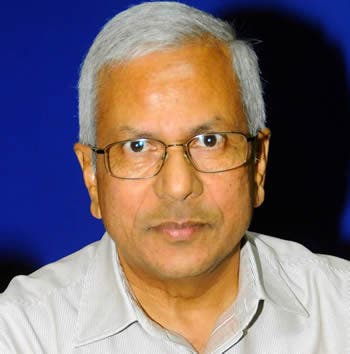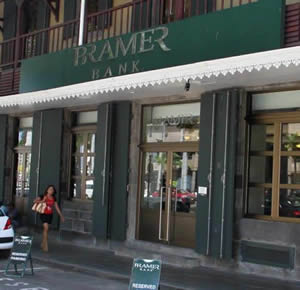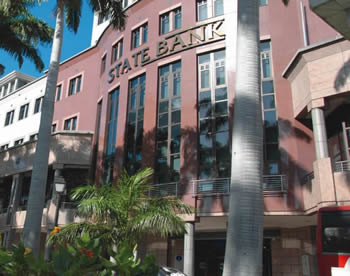
The recent events that have rocked the SBM Bank have brought into the limelight the issue of non-performing loans by banks, and the lightness with which some applications are approved. How can a bank suddenly find itself in such a situation?
One of the roles of banks is to provide loans for businesses to invest and create jobs. Loans are also granted to individuals to buy a vehicle or an immovable property, construct a house or finance studies.
However, granting loans is not risk free because banks are never certain that the business or individual will repay the loan in a timely manner. If the borrower stops repaying the loan, the bank must then classify the loan as 'non-performing' after a certain period of time. According to a local banker, a loan is generally considered to be ineffective when there are indications that the borrower is unable to repay the loan due to financial difficulty or when more than three months have elapsed without paying the installments. This happens for example if a company is facing difficulties or an individual becomes redundant at work.
He explains that a bank must strive to maintain a very low level of bad debts. When the value of non-performing loans reaches a certain level, the profitability of the bank is impaired. Due to the loss of revenue, the bank has fewer resources to grant new loans, further reducing its profits. A bank with too many bad debts cannot give credit to companies that want to invest and create jobs. And if several banks find themselves in a similar situation, it is the economy that is likely to be globally affected. This is why the Central Bank issues strict regulations and directives regarding the processing of loan applications.
To avoid bad debts, the officer says banks avoid granting too risky loans by properly assessing the creditworthiness of borrowers. Some banks also carry out adequate follow up to quickly detect if the borrower is in financial difficulty. A bank can also advise clients in managing their financial situations to prevent loans from becoming non-performing.
The recovery route
Banks have two main recovery recourses: consensual and legal. Through consensual means, a bank may choose to restructure the loan with new terms or assist in restructuring the business with new lending or equity so that the business can generate income. The bank may also welcome partial cash settlement via the sale of assets. The bank may however have recourse to legal methods to enforce underlying collateral if the borrower is not cooperative. A recovery though insolvency, liquidation or administration process may also be envisaged.
The MCIB: Preventing high indebtedness
The Mauritius Credit Information Bureau (MCIB) has been operational since December 2005. This office, managed by the Bank of Mauritius, maintains a database of credit given by lenders, also known as MCIB participants, to businesses as well as individuals. The information held relates to loans, overdrafts, credit cards, and leasing facilities primarily. The purpose of the MCIB is to establish a profiling of borrower indebtedness in Mauritius. Contrary to a general perception, the MCIB does not maintain any list of “blacklisted” persons due to non-payment of loans. It simply reports the facts as they are.
Financial stability
According to a World Bank report on financial stability, the proportion of non-performing loans relative to total gross loans issued by Mauritian banks was 7.8% in 2017. Comparatively, in Singapore the rate was 1.4% while the United Kingdom had a score of 0.8%. For India, the proportion was 10%, Malaysia 1.5% and South Africa 2.8%. Among the countries at high risk were Greece (45.6%), Cyprus (40.2%), Ghana (21.6%), Equatorial Guinea (28.4%) and the Central African Republic (23%).
Dan Maraye : “Loan approval process requires multi-level verifications”
Can a bank offer substantial loans easily? We asked the question to Dan Maraye, a former Governor of the Bank of Mauritius. He explains to us the process of approving a loan application of a substantial amount. He says that such an application is normally studied by a Credit Risk Assessment Committee. “Members will analyse the level of risk and if the risk is reasonable, they may recommend the loan. But a board of directors may not approve the recommendation. The opposite is equally possible, that is, a committee does not recommend a loan because of a high level of risk, but the board still chooses to approve the application! In this case, the board takes his responsibility.”

He further adds that “If I were a member of the Board, I would never go against a Committee’s recommendations because the committee is in a better position to assess an application and would have done its work in order to come to such a conclusion.” He says that there are verifications at different levels and the decision to grant a loan cannot be that of a single person, but of a whole team. It is imperative for commercial banks to follow the guidelines of the Bank of Mauritius, but each bank may have its own method of operation.
But how do we prevent the granting of non-performing loans? Dan Maraye states that if the work is done professionally, the problem will not arise. “Before granting a loan, especially a large amount, the bank asks for a lot of information, in the case of a business applicant, it will scrutinise the financial results of the last three years and check the cash flow forecast, to see if the applicant will have the ability to repay the loan.” He adds that it is also necessary to do background research on the directors in the case where the request for loan is made by a company and the vigilance level is raised if the applicant is a foreign company. It must always be borne in mind that the money to be loaned does not belong to the bank but to its shareholders of customers who have deposited their savings. “
Bank scams
The banking sector has not always been immune to financial scandals. Here are some major cases that have tainted the image of our banks.
The MCB/NPF case
In 2003, the MCB / NPF affair broke out following the discovery of a Rs 600 million hole in the deposits of the National Pensions Fund. It is the bank itself that brought this case in public. The trial in court lasted several years.
From BCCI to FCB
In 1990, the Mauritian subsidiary of the Bank of Commerce and Credit International (BCCI) was closed when the US authorities uncovered a network of money laundering around the world operating from the BCCI. In 1991, Kenyan businessman Ketan Somaia took over the bank which became Delphis Bank. In 1996, when the Bank of Mauritius ordered the closure of the Union Bank, Delphis Bank bought the bank. Shortly after, Ketan Somaia was accused of massive fraud in Kenya, which compromised the future of Delphis Bank. The bank was subsequently taken over by the First City Bank in April 2002. The First City Bank has now become Bank One.

The BAI/Bramer case
It was in April 2015 that the Bramer Bank affair of the defunct BAI group broke out. At a press conference on Friday 3 May 2015, the then Prime Minister Sir Anerood Jugnauth announced that the group was involved in a very large scale financial scandal (Ponzi Scheme), valued at nearly Rs 25 billion. The rest is history.
SBM and Euroloan
In 2016, the Euro loan granted by the SBM bank to former Finance Minister Vishnu Lutchmeenaraidoo, caused an uproar. However, it was later established that procedures had been duly followed. Vishnu Lutchmeenaraidoo subsequently served a notice to the bank claiming damages for leak of confidential information.
SBM reassures the public
On 10 August 2018, following press articles relating to a facility granted to a Dubai based entity by the SBM Bank, the Board of Directors issued a communiqué to inform that the Bank has initiated an internal inquiry into a suspected fraud in respect of net facilities of USD 27 million granted to a segment B client. The Bank has commenced recovery proceedings and referred the matter to the relevant authorities for further action. Whilst this issue has arisen post the period end, the Bank will make provisions in its books in line with Bank of Mauritius guidelines, which will be reflected in its June 2018 financial statements. SBM Bank (however reassured the public that it remains a strong financial institution with a solid balance sheet and with total assets of MUR 188 billion as at 31st March 2018. On 17 August 2018, the Board of Directors of SBM Holdings Ltd informed in another press release that, further to the internal enquiry initiated by SBM Bank, the bank subsequently accepted the resignation of its Chief Executive, Mr Raj Dussoye. The new officer in charge is Parvataneni Venkateswara Rao, who was until then Head of Financial Markets at the SBM. He will lead the bank until the appointment of a new CEO.
The SBM group has also successfully completed the acquisition of the carved out assets and assumption of specific liabilities of Chase Bank Kenya Limited, through its subsidiary SBM Bank (Kenya) Limited. The completion follows the Central Bank of Kenya’s approval. SBM Kenya now has a network of 59 branches across Kenya offering a full range of banking products and services since Monday.
“It is a moment of great pride for us as a Group to have completed this landmark transaction slightly more than a year after we first entered the Kenyan market with the acquisition of the Fidelity Commercial Bank and it confirms our will to engage more in Kenya’s economy and society,” said the Group Chairman of SBM Holdings Ltd, Mr. Kee Chong LI KWONG WING, GOSK.
“We are very excited to start full operations as a strong top Tier 2 SBM Kenya. We look forward to welcoming our clients and providing them with competitive banking services and non-banking financial products and services as well. Moreover, we want to build the India/Mauritius/Madagascar/Kenya linkages to grow both funded and non-funded business, through helping our clients to use and develop the Asia – Africa corridor that we are part of facilitating”, declared Mr. Andrew Bainbridge, Group CEO.
 J'aime
J'aime














